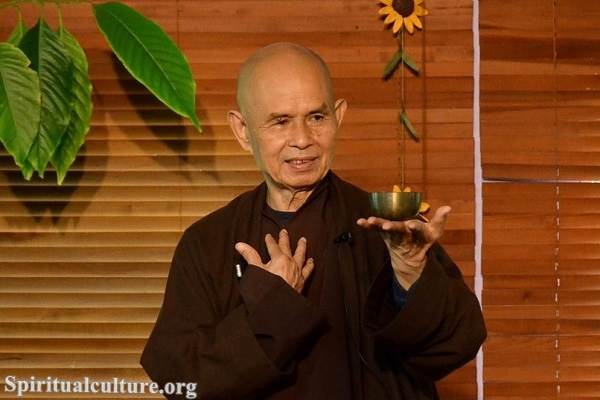The Five Precepts are a set of ethical guidelines that are an integral part of Buddhism. The Five Precepts in Buddhism are:
I. What are the Five Precepts in Buddhism?
They are guidelines to help followers of Buddhism to live a peaceful and harmonious life, and to cultivate positive qualities of mind. The Five Precepts are:
- Panatipata veramani sikkhapadam samadiyami – I undertake the precept to refrain from destroying living creatures.
- Adinnadana veramani sikkhapadam samadiyami – I undertake the precept to refrain from taking that which is not given.
- Kamesu micchacara veramani sikkhapadam samadiyami – I undertake the precept to refrain from sexual misconduct.
- Musavada veramani sikkhapadam samadiyami – I undertake the precept to refrain from false speech.
- Suramerayamajja pamadatthana veramani sikkhapadam samadiyami – I undertake the precept to refrain from intoxicating drinks and drugs which lead to carelessness.
II. Detailed interpretation of Five Precepts
1. Refrain from harming living beings
The first precept in Buddhism is “refrain from harming living beings”. This precept emphasizes the importance of cultivating compassion and non-violence towards all living beings, and it is based on the fundamental Buddhist teaching of ahimsa or non-harming.
This precept encourages Buddhists to practice kindness, empathy, and respect towards all living beings, including animals, insects, and other forms of life. It is a reminder that all living beings have the right to live without fear or harm, and that causing harm to others not only creates suffering for them, but also creates negative karma for oneself.
The precept to refrain from harming living beings applies not only to physical harm, but also to emotional harm. Buddhists are encouraged to be mindful of their thoughts, words, and actions towards others, and to avoid causing pain, suffering, or distress in any way.

In addition, this precept encourages Buddhists to be mindful of the impact of their lifestyle choices on the environment and other living beings. For example, practicing vegetarianism or veganism is seen as a way of reducing harm to animals and living beings, and living a sustainable lifestyle can help reduce the impact of human activities on the natural world.
Overall, the precept to refrain from harming living beings is a reminder of the interconnectedness of all life, and the importance of living in harmony with the natural world. It encourages Buddhists to cultivate compassion, kindness, and respect towards all living beings, and to live in a way that promotes peace and harmony in the world.
2. Refrain from taking what is not given
The second precept in Buddhism is “refrain from taking what is not given”. This precept emphasizes the importance of practicing honesty, integrity, and respect for the property of others. It is based on the fundamental Buddhist teaching of right livelihood and right action.
This precept encourages Buddhists to avoid stealing, taking what does not belong to them, or engaging in any form of dishonesty or deception. It applies to material possessions, as well as intangible things such as ideas, intellectual property, and time. Buddhists are encouraged to be mindful of their actions and to avoid taking advantage of others for personal gain.
In addition, this precept encourages Buddhists to cultivate generosity and compassion towards others. By refraining from taking what is not given, Buddhists are able to develop a sense of contentment and gratitude for what they have, and to appreciate the generosity of others.
The precept to refrain from taking what is not given also emphasizes the importance of social responsibility and community harmony. By respecting the property of others, Buddhists are able to contribute to a peaceful and harmonious society, where people are able to trust and respect each other.
Overall, the precept to refrain from taking what is not given is a reminder of the importance of practicing honesty, integrity, and respect for others. It encourages Buddhists to cultivate a sense of contentment and gratitude for what they have, and to contribute to a harmonious and peaceful society by respecting the property of others.
3. Refrain from engaging in sexual misconduct
The third precept in Buddhism is “refrain from engaging in sexual misconduct”. This precept emphasizes the importance of cultivating mindfulness and respect in all aspects of sexuality and intimate relationships.
This precept encourages Buddhists to avoid any sexual behavior that causes harm or suffering to oneself or others. This includes avoiding sexual relationships that involve exploitation, abuse, coercion, or deceit. Buddhists are encouraged to cultivate mindfulness and compassion in their sexual relationships, and to treat their partners with respect and kindness.
The precept to refrain from engaging in sexual misconduct also emphasizes the importance of personal responsibility and self-control. Buddhists are encouraged to avoid sexual behavior that is driven by greed, lust, or attachment, and to cultivate a sense of contentment and inner peace through meditation and spiritual practice.
In addition, this precept recognizes the importance of celibacy in the spiritual path. Many Buddhist monks and nuns take vows of celibacy as a way of renouncing attachments to sensual pleasures and focusing on their spiritual practice.
Overall, the precept to refrain from engaging in sexual misconduct is a reminder of the importance of cultivating mindfulness, respect, and responsibility in all aspects of sexuality and intimate relationships. It encourages Buddhists to avoid harmful and exploitative sexual behavior, and to cultivate a sense of inner peace and contentment through spiritual practice.
4. Refrain from speaking falsely or harshly
The fourth precept in Buddhism is “refrain from speaking falsely or harshly”. This precept emphasizes the importance of cultivating mindfulness and kindness in all aspects of communication.
This precept encourages Buddhists to avoid lying, gossiping, or engaging in any form of speech that is harmful or hurtful to others. It also encourages Buddhists to cultivate mindfulness in their speech, and to avoid using language that is harsh, aggressive, or disrespectful.
The precept to refrain from speaking falsely or harshly emphasizes the importance of right speech, which is one of the components of the Eightfold Path in Buddhism. Right speech involves using language that is truthful, kind, and helpful, and avoiding language that is false, harmful, or divisive.
In addition, this precept encourages Buddhists to cultivate empathy and compassion in their communication, and to listen to others with an open and compassionate heart. By doing so, Buddhists are able to create a sense of harmony and connection in their relationships with others.
Overall, the precept to refrain from speaking falsely or harshly is a reminder of the importance of cultivating mindfulness and kindness in all aspects of communication. It encourages Buddhists to speak truthfully, kindly, and respectfully, and to avoid using language that is harmful or hurtful to others. By cultivating right speech, Buddhists are able to create a sense of harmony and connection in their relationships with others, and to contribute to a more peaceful and compassionate world.
5. Refrain from consuming substances that cause heedlessness
The fifth precept in Buddhism is “refrain from consuming substances that cause heedlessness”. This precept emphasizes the importance of cultivating mindfulness and self-awareness, and avoiding behaviors that lead to harm or suffering for oneself or others.
This precept encourages Buddhists to avoid consuming substances that cause intoxication or addiction, such as alcohol, drugs, or other mind-altering substances. The purpose of this precept is to help practitioners develop clear and focused minds, free from the clouded judgment and impaired decision-making that can result from substance abuse.
The precept to refrain from consuming substances that cause heedlessness also emphasizes the importance of personal responsibility and self-control. Buddhists are encouraged to cultivate mindfulness and self-awareness, and to be mindful of the consequences of their actions.
In addition, this precept recognizes the importance of maintaining physical and mental health in the spiritual path. Consuming substances that cause heedlessness can lead to physical and mental health problems, which can interfere with spiritual practice.
Overall, the precept to refrain from consuming substances that cause heedlessness is a reminder of the importance of cultivating mindfulness, self-awareness, and personal responsibility. It encourages Buddhists to avoid behaviors that lead to harm or suffering for oneself or others, and to maintain physical and mental health in order to support spiritual practice. By doing so, Buddhists are able to develop clear and focused minds, free from the clouded judgment and impaired decision-making that can result from substance abuse.





